Weekly Update
This week was filled with policy hearings and executive sessions as the Legislature works toward the opposite house policy cutoff on March 29th. Legislators and lobbyists were also anxiously awaiting the Economic and Revenue Forecast and the release of the Senate capital and operating budgets.
On Monday, March 20th the Economic and Revenue Forecast Council (ERFC) released the Spring Quarterly Economic & Revenue Forecast. The forecast showed downward trends in our state revenue and budget projections. When compared to the November 2022 forecast, the forecast of funds subject to the budget outlook is increased by $194 million for the current 2021-23 biennium, but then is decreased by $483 million for the 2023-25 biennium, decreased by $541 million for the 2025-27 biennium. The Spring Quarterly Economic & Revenue Forecast is what the House and Senate use to base their respective budget proposals on. This downward trend served as an indicator for more modest budget proposals than we’ve seen in recent years. For more detail on the forecast, see this helpful 2023 Spring Revenue Forecast Memo from the Prevention Alliance.
In an unanticipated release, the Washington state Supreme Court ruled to uphold the capital gains tax. The court ruled 7-2 Friday morning that the capital gains tax is constitutional because it’s an excise tax and not a property tax. This ruling landed as lawmakers in Olympia have started to reveal their state spending plans for the next two years. The Senate built the new tax into their capital and operating budget proposals – the tax is projected to bring in about $1 billion in the upcoming two-year budget. The revenue largely goes to early learning and child care programs under the Fair Start for Kids Act that passed in 2021 and school construction.
At this point, the Senate has released their proposed capital and operating budgets. Additional details, documents, and timing for hearings and executive sessions as far as we know are outlined below:
Senate Capital Budget
The Senate capital budget was released on Monday, March 20th and heard in Senate Ways & Means committee that same day at 4pm. It appropriates a total of $7.9 billion for the 2023-2025 biennium. The budget was slightly amended in the Senate Ways & Means committee Wednesday afternoon and voted off the Senate floor on Friday with a 44-0 vote count.
Senate Operating Budget
The Senate proposed operating budget was released on March 23rd and heard in Senate Ways & Means on Friday, March 24th. It would appropriate $69.2 billion in 2023-2025 from funds subject to the outlook (NGF-O). Policy level changes are a net increase of $5.1 billion.
House Operating, Capital & Transportation Budgets
The House will release all three of their proposed budgets – operating, capital, and transportation – on Monday, March 27th. The budget proposals will be posted on the LEAP site here.
The operating budget is scheduled to be heard in the House Appropriations Committee on Monday, March 27th and executive session on Wednesday, March 29th. The transportation budget is scheduled for a hearing in the House Transportation Committee on Monday, March 27th and executive session on Wednesday, March 29th. The capital budget is scheduled for a hearing in the House Capital Budget Committee on Tuesday, March 28th and executive session on Thursday, March 30th.
Senate Transportation Budget
The Senate Transportation budget will be released on Wednesday with a hearing on Thursday, March 30th.
TVW’s Legislative Review does clips each day highlighting some of the hot topics of the day. You can find links to the Legislative Review videos here.
Session Primers
Primer: Four Year Balanced Budget
While Washington State operates on a two-year (biennial) budget cycle, legislation was passed in 2012 that requires a four-year balanced budget. The four-year outlook requirement requires the legislature to adopt a budget that balances the current biennium as well as the ensuing biennium.
For the current biennium, this means the State General Fund and relevant other funds must not exceed current revenue. For the ensuing biennium, the amount of available fiscal resources must be equal or greater than the projected maintenance level for the ensuing biennium.
There are three main terms that are key to understanding the four-year outlook requirement.
- Balanced Outlook or Budget means there is a positive ending fund balance in the state general fund and related funds for the current and ensuing biennium. A positive ending fund balance for the ensuing biennium requires that the projected maintenance level does not exceed the available fiscal resources.
- Projected Maintenance Level is defined as the estimated appropriations necessary to maintain continuing the costs of programs and service levels that are either funded in the current appropriations bill or are required by state or federal law, plus the amount projected to be transferred to the budget stabilization account (aka the Rainy Day Fund). There are specific exceptions that are not factored into the projected maintenance level.
- Available Fiscal Resources is defined as forecasted revenues adjusted for the greater of either (i) the official revenue forecast for the ensuing biennium, or (ii) 4.5% annual growth for the next biennium based on the second year of the current biennium.
The Budget Outlook Workgroup holds a key role in this process by preparing an official state budget outlook for state revenues and expenditures. This outlook must include costs forecasted in the upcoming four years for continuing existing programs, projecting for future growth as well as implementation costs of various laws. The Economic and Revenue Forecast Council then approves this budget outlook and the Legislature uses this information to craft and pass a budget ensuring the state’s expenditures do not exceed projected revenues for the following four years.
Upcoming Events Report
Labor & Commerce (Senate) – SHR 1 and Virtual J.A. Cherberg – 3/27 @ 10:30am
ESHB 1106 – Exec Session – Concerning qualifications for unemployment insurance when an individual voluntarily leaves work.
Law & Justice (Senate) – SHR 4 and Virtual JACB – 3/27 @ 10:30am
EHB 1636 – Public Hearing – Concerning foreclosure protections for homeowners in common interest communities. (Remote Testimony Available).
Housing (House) – HHR B and Virtual JLOB – 3/27 @ 1:30pm
SSB 5235 – Exec Session – Concerning accessory dwelling units.
ESSB 5466 – Exec Session – Promoting transit-oriented development.
SSB 5491 – Exec Session – Allowing for residential buildings of a certain height to be served by a single exit under certain conditions.
Appropriations (House) – HHR A and Virtual JLOB – 3/27 @ 4:00pm
HB 1140 – Public Hearing – Making 2023-2025 fiscal biennium operating appropriations. (Hearing is on the Proposed Substitute).
Transportation (House) – HHR B and Virtual JLOB – 3/27 @ 4:00pm
HB 1125 – Public Hearing – Making transportation appropriations for the 2023-2025 fiscal biennium. (Hearing is on the Proposed Substitute.)
Ways & Means (Senate) – SHR 4 and Virtual JACB – 3/27 @ 4:00pm
SB 5187 – Exec Session – Making 2023-2025 fiscal biennium operating appropriations.
Capital Budget (House) – HHR B and Virtual JLOB – 3/28 @ 8:00am
HB 1147 – Public Hearing – Concerning the capital budget. (Hearing is on the Proposed Substitute.)
Local Government, Land Use & Tribal Affairs (Senate) – SHR 3 and Virtual JACB – 3/28 @ 9:00am
ESHB 1245 – Exec Session – Increasing housing options through lot splitting.
EHB 1337 – Exec Session – Expanding housing options by easing barriers to the construction and use of accessory dwelling units.
Law & Justice (Senate) – SHR 4 and Virtual JACB – 3/28 @ 10:30am
SHB 1080 – Exec Session – Concerning body worn cameras.
EHB 1636 – Exec Session – Concerning foreclosure protections for homeowners in common interest communities.
Environment, Energy & Technology (Senate) – SHR 1 and Virtual J.A. Cherberg – 3/28 @ 1:30pm
ESHB 1329 – Exec Session – Preventing utility shutoffs for nonpayment during extreme heat.
Community Safety, Justice, & Reentry (House) – HHR D and Virtual JLOB – 3/28 @ 4:00pm
ESB 5352 – Exec Session – Concerning vehicular pursuits.
Housing (House) – HHR B and Virtual JLOB – 3/28 @ 4:00pm
SSB 5235 – Exec Session – Concerning accessory dwelling units.
ESSB 5466 – Exec Session – Promoting transit-oriented development.
SSB 5491 – Exec Session – Allowing for residential buildings of a certain height to be served by a single exit under certain conditions.
Ways & Means (Senate) – SHR 4 and Virtual JACB – 3/28 @ 4:00pm
SHB 1250 – Public Hearing – Modifying the low-income home rehabilitation program. (Remote Testimony Available).
Appropriations (House) – HHR A and Virtual JLOB – 3/29 @ 4:00pm
HB 1140 – Exec Session – Making 2023-2025 fiscal biennium operating appropriations.
Transportation (House) – HHR B and Virtual JLOB – 3/29 @ 4:00pm
HB 1125 – Exec Session – Making transportation appropriations for the 2023-2025 fiscal biennium.
Capital Budget (House) – HHR B and Virtual JLOB – 3/30 @ 8:00am
HB 1147 – Exec Session – Concerning the capital budget.
HB 1148 – Exec Session – Concerning state general obligation bonds and related accounts.
Transportation (Senate) – SHR 1 and Virtual J.A. Cherberg – 3/30 @ 12:30pm
SB 5162 – Public Hearing – Making transportation appropriations for the 2023-2025 fiscal biennium. (Hearing is on the Proposed Substitute.) (Remote Testimony Available).
Capital Budget (House) – HHR B and Virtual JLOB – 3/31 @ 8:00am
ESSB 5301 – Exec Session – Concerning housing programs administered by the department of commerce.












